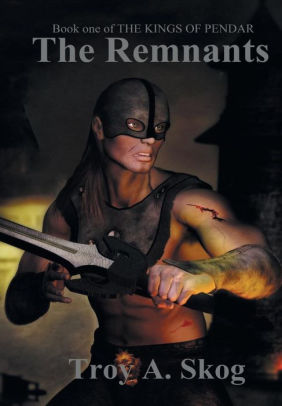Book Review: The Remnants by Troy A. Skog
The humans and dwarves of Pendar have long disdained their gnomish neighbors to the south. Fast-breeding but weak and disorganized, the gnomes have never been a threat before. But now King Orgle has somehow brought the gnome tribes together as an army which is invading Pendar–and winning! Poorly trained but fanatical and with superior numbers, the gnome invaders are guided by Orgle’s uncanny tactical ability…at least during the day.

King Samuel Ellingstone of Pendar has a plan to exploit Orgle’s lack of nocturnal prowess, but realizes that it might well fail. Therefore, he has created a backup. His friend Kurad has been instructed to sneak young Prince Edward out of the palace, making it appear he has been murdered. That way, if the kingdom falls, the true heir will not be looked for.
Pendar falls, and King Orgle reigns supreme, but far away Kurad and Prince Edward are safe–for now. There will be years of training yet before it is time for the true king to return and overthrow the usurper.
Good: Well, using gnomes as the villains of the story is certainly unexpected. Also, the story does a good job of setting up later events so that they make sense when they occur.
Less good: The world building is underwhelming. It’s a vaguely Western Europe Fantasy setting divided into various countries, and that’s about all we get on the cultural side for humans and dwarves. Gnome culture is entirely negative, filthy and bullying.
None of the characters rises above their stock role. Orgle is incompetent at almost everything, and is only succeeding because he has a powerful magic artifact. (And once he’s in power, mostly inertia keeps him in charge.)
The ending wastes the potential of the title Remnants.
Also, there’s quite a few spellchecker typos, which makes the other flaws stand out.
Odd: Apparently, Orgle is much better at diplomacy than King Samuel was, since the other nations refused to help Pendar against the invaders, but are perfectly content to let Orgle’s soldiers pass into their countries on scouting missions. I’d have liked to have seen more exploration of this. (In general, more politics could only have helped the book.)
I am hoping that this was an early effort by the author and that he has since improved.

